Harris touts growing up in middle class while pushing mandate most ‘won’t be able to afford’: economist
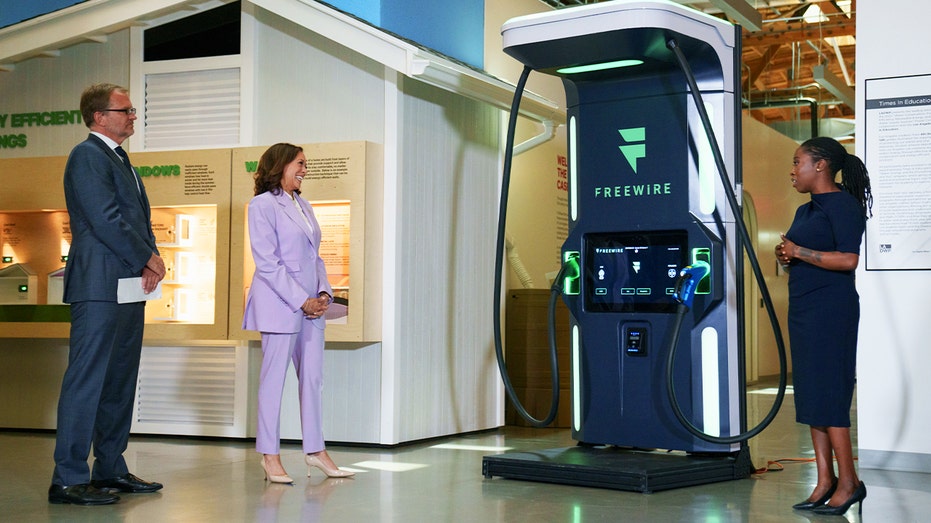
Vice President Harris frequently says that if elected she will build a “strong middle class,” even as the Biden administration pushes for an electric vehicle mandate that one economist says is out of step with most middle-class Americans. “I believe we need to grow our middle class and make sure our economy works for everyone, for people like the people in the neighborhood where I grew up and the hardworking Americans I meet every day across our nation,” Harris said at a campaign event in September. “When we invest in those things that strengthen the middle class – manufacturing, housing, health care, education, small businesses, and our communities – we grow our economy and catalyze the entire country to succeed.” After becoming the Democrat presidential nominee, Harris said she does not support imposing mandates on electric vehicles. However, the Biden-Harris administration is currently pushing one that an economist says is not practical for the middle class. “We know just from the facts that middle-class people are rejecting EVs. There are a lot of reasons why that’s happening, why the trend is shifting on EVs, but one of them is the cost. These are $80,000 cars,” Stephen Moore, economist and senior visiting fellow in economics at the Heritage Foundation, told Fox News Digital. HARRIS SUPPORT FOR EVS COULD TANK CAMPAIGN IN CRITICAL SWING STATE, EXPERT SAYS The Environmental Protection Agency (EPA) announced a final rule in March under the Clean Air Act to set new emissions standards that would require up to two-thirds of new car sales to be electric by 2032. The new standards would affect “light-duty vehicle manufacturers, independent commercial importers, alternative fuel converters, and manufacturers and converters of medium-duty vehicles,” according to the EPA’s final rule. The rule offers a tax credit of up to $7,500 for qualified purchases, but Moore said that even with the tax credit, EVs are “still out of [middle-class Americans’] price range.” HARRIS WON’T SUPPORT EXPANDING FOSSIL FUEL DRILLING, CAMPAIGN SAYS “The idea that you’re going to force people to buy $75-, $80- $90,000 cars is going to mean a lot of Americans won’t be able to afford to buy a car if you continue with these mandates,” he said. Moore added that the Biden-Harris administration mandate, which the House voted to block in September, would prevent those in the middle class from being able to afford a car. “EVs are cars that wealthy people can afford, but not middle-class people, for the most part. They’ve got these mandates that say eventually 65% of cars are going to be EVs, but you’ve only got half that number of people that want to buy EVS. That means that there’s going to be a shortage of gas cars, which is the cars that middle-class people can afford,” Moore said in an interview with Fox News Digital. The average electric vehicle costs more than $56,000 as of September 2024, according to Kelley Blue Book, a vehicle valuation firm. The average middle-class American earns two-thirds or double the median national household income, which stands at $80,610, according to the U.S. Census Bureau via Federal Reserve Economic Data (FRED). Given the current median, the middle-class income today ranges from about $53,000 to $160,000. A Capital One price analysis on electric vehicles reported that EV purchases are “out of reach of anyone bringing home less than about $120,000 per year,” thus excluding most of the middle class from eligibility based on the U.S. Census Bureau via FRED average. Recent surveys suggest that most middle-class Americans are not currently looking to purchase an electric vehicle. A Gallup survey released in April found that only 5% of middle-income Americans own an electric vehicle and that 44% would not consider buying one. Additional polling from Pew Research, released in June, found that three in 10 Americans would seriously consider buying an electric vehicle. “Why are EVs practical for anyone (not just the middle class)? They offer a superior driving experience. They are quieter, smoother and have far superior acceleration,” John Higham, Electric Vehicle Association Board of Directors, argued that electric vehicles can be more practical for middle class citizens. Higham noted the factor of charging as a main reason every household might not be ready for an electric vehicle. “I think most importantly is EVs can be more economical to drive. Note I said “can be.” They can also be more expensive to drive and I see a lot of math tilted to show that later instead of demonstrating the former,” Higham told Fox News Digital. “Then if EVs are nicer to drive and can cost less than a gasoline counterpart, why aren’t they for everyone one? It comes down to charging. If you can charge at home, you are likely a good candidate for an EV. If not, then probably not.” Fox News Digital reached out to the Harris campaign for comment.
GRAP II in Delhi-NCR: Air quality dips to ‘very poor’ category in national capital; know what’s allowed, what’s not

This deterioration in air quality led to prompting enforcement of Stage II of the Graded Response Action Plan (GRAP) in Delhi, which enforces a ban on the use of coal and firewood, including tandoors in hotels, restaurants, and open eateries, as well as diesel generator sets.
Good news for Delhi: Stubble burning cases have fallen to 2,300 in 2023, says Haryana State Pollution Control Board

Haryana State Pollution Control Board Secretary Pradeep Kumar reported a significant drop in stubble burning cases in 2023.
Sakshi Malik’s BIG claim, says BJP’s Babita Phogat wanted to be WFI chief, encouraged wrestlers to…

Regarding the rumours that Congress supported the protest, Malik said that it was two BJP leaders…
Peruvian ex-president sentenced to more than 20 years in bribery case
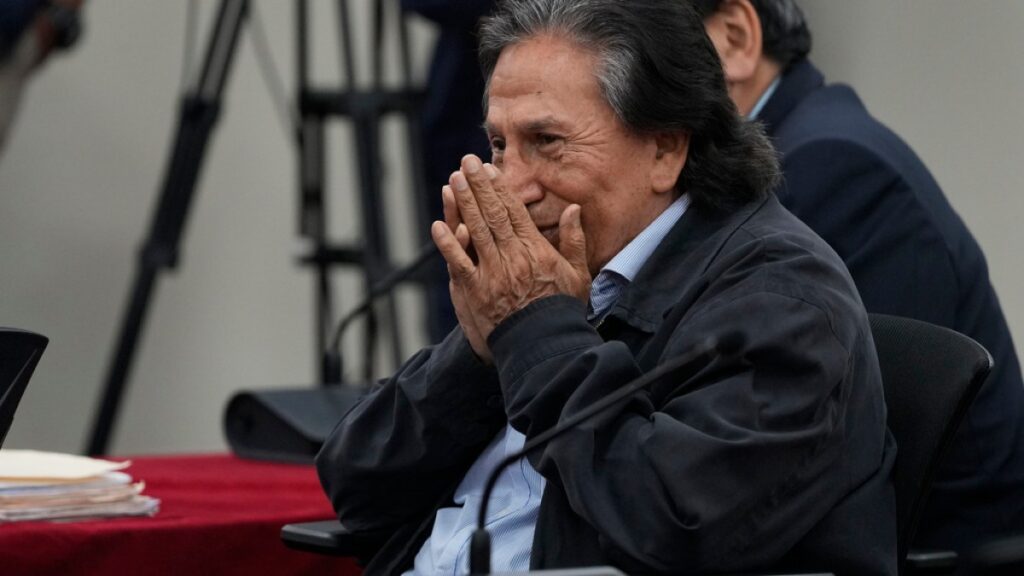
Alejandro Toledo is the latest Latin American leader to be implicated in the Odebrecht corruption scandal. Peruvian ex-President Alejandro Toledo has been sentenced to more than 20 years in prison, the latest Latin American leader to be jailed in connection with the Odebrecht construction firm corruption scandal. Toledo was convicted of taking $35m in bribes from the Brazilian construction firm in exchange for a freeway construction contract, and was sentenced to 20 years and six months in prison on Monday. “I want to go to a private clinic. I ask you please to let me get better or die at home,” Toledo said at a hearing last week, saying that he was dealing with health issues stemming from cancer. The 78-year-old former leader of the Andean nation, who served in office from 2001 to 2006, received one of the harshest sentences yet handed out in connection to Odebrecht’s campaign of bribery in exchange for political favours across the continent. During a yearlong trial, Toledo consistently denied charges of money laundering and collusion levelled against him by prosecutors. He was first arrested in the United States in 2019 after Peru requested his extradition, and was sent back there in 2022 after years of legal debate over his potential extradition. Odebrecht-related scandals have led to the jailing of officials in Peru, Panama, and Ecuador. Probes of corruption by the construction giant have also occurred in countries such as Guatemala and Mexico. The company has since changed its name to Novonor. In 2019, Peru jailed 14 top lawyers while they were investigated for allegations of providing the firm with preferential treatment in public works contracts. Toledo will serve his sentence in a prison on the outskirts of the Peruvian capital of Lima, specially constructed to house former presidents. He may soon have additional company. Two more ex-presidents, Pedro Pablo Kuczynski and Ollanta Humala, are under investigation in similar cases related to Odebrecht. Former President Pedro Castillo is also being detained as he faces charges of “rebellion” after a failed attempt to dissolve Congress in 2022. Adblock test (Why?)
Southeast Asia deepening dependence on fossil fuels, report warns
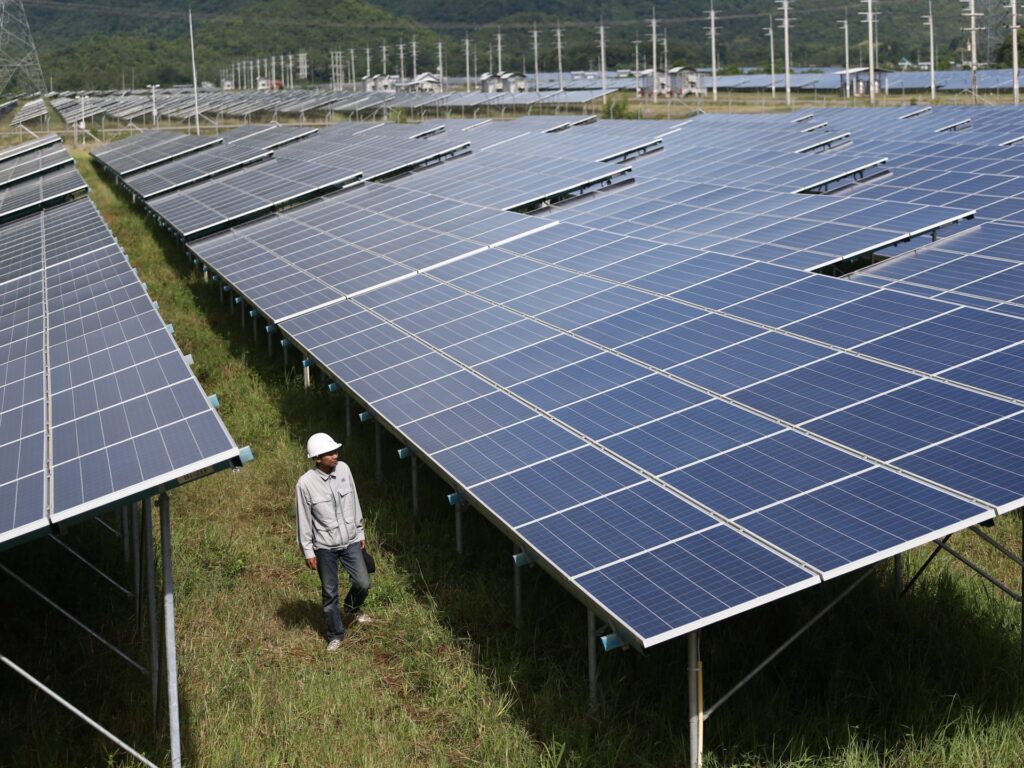
ASEAN’s 10 members met the entirety of region’s rise in electricity demand last year through fossil fuels, report says. Southeast Asia is at risk of deepening its dependence on fossil fuels as it tries to meet surging demand for electricity, an environmental think tank has warned. The 10 nations of the Association of Southeast Asian Nations (ASEAN) met the entirety of the region’s 3.6 percent rise in electricity demand last year through fossil fuels, the United Kingdom-based think tank Ember said in a report released on Tuesday. ASEAN’s share of energy generated by renewables, meanwhile, fell to 26 percent compared with 28 percent in 2022 amid a decline in hydropower production due to droughts and other extreme events, the report said. Carbon emissions grew by 6.6 percent last year, representing an additional 44 million tonnes of CO2 in the atmosphere, according to the report. Top coal polluters included Vietnam, Malaysia and the Philippines, while Singapore and Thailand’s emissions mostly came from natural gas, according to the report. Ember said the region’s slow energy transition means it is missing out on the benefits of renewables, including the declining cost of solar and wind power, which are now cheaper than fossil fuels. “Continuing at this pace of transition risks ASEAN becoming more dependent on fossil fuels, missing opportunities presented by emerging clean energy technologies and economics, and failing to meet climate targets,” the think tank said in its report. “Meanwhile, electricity demand continues to grow rapidly, making it more important than ever to meet this demand with clean energy.” Ember said two of the most promising long-term solutions are solar power and wind power, as hydropower faces increasing reliability issues due to droughts and changing rain patterns. The report came as the International Energy Agency (IEA) on Tuesday warned that Southeast Asia would need to invest $190bn – or five times its current rate of investment – to achieve its climate goals by 2035. Even with clean energy sources projected to meet more than one-third of the growth in energy demand, the region is still on track to increase its carbon emissions by 35 percent between now and 2050, the Paris-based intergovernmental organisation said in a report. Demand for electricity in Southeast Asia is set to grow at an annual rate of 4 percent, according to the IEA report. “Clean energy technologies are not expanding quickly enough and the continued heavy reliance on fossil fuel imports is leaving countries highly exposed to future risks,” the IEA’s executive director, Fatih Birol, said. Courtney Weatherby, the deputy director of the Stimson Center’s Southeast Asia programme, said that renewables like solar power have great potential but there are still many institutional roadblocks in the way. Many ASEAN countries are trying to modernise and expand their energy generation capacity at the same time, leading to conflicting priorities, Weatherby said, while renewables still face problems like storage, grid management and the inability to produce power on demand during peak hours. “Most countries in ASEAN are coming from a relatively low starting point for solar/wind deployment and this means that even rapid expansion will not lead to a full transition in a timely manner,” Weatherby told Al Jazeera. “More importantly, the mandate for power utilities is to ensure that the power supply is stable and reliable in order to ensure both access to power for consumers and also support ongoing economic development through attracting investment, often in manufacturing,” she added. Adblock test (Why?)
Harvey Weinstein diagnosed with bone marrow cancer, reports say
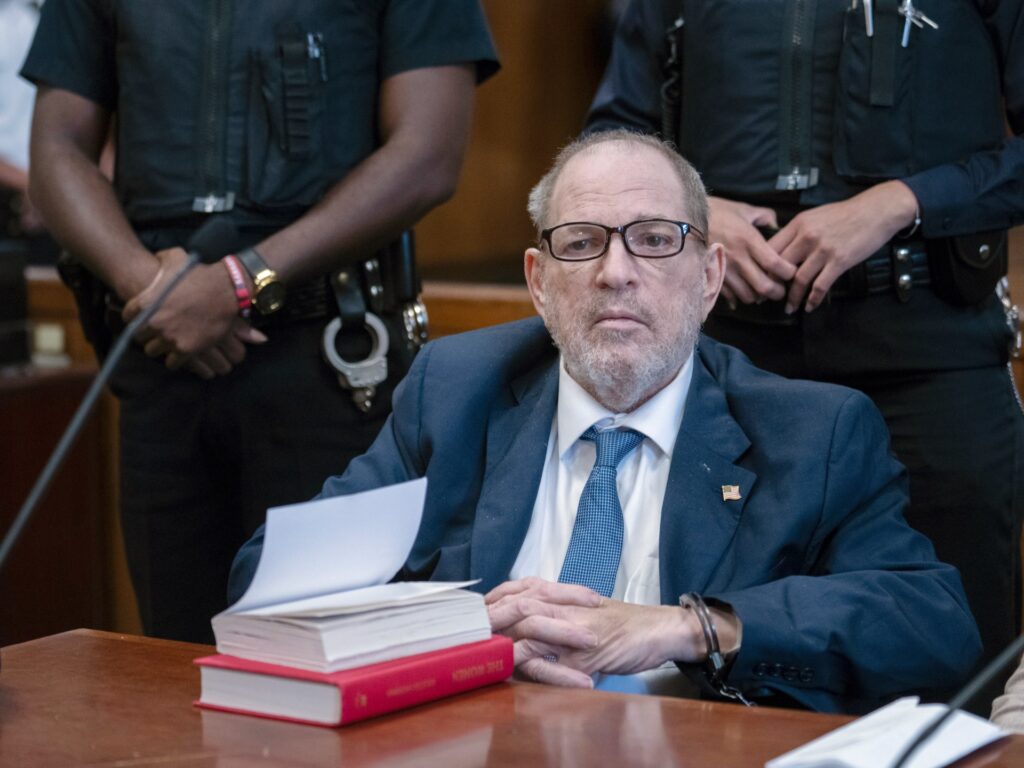
Jailed Hollywood producer is being treated in prison for chronic myeloid leukaemia, US media outlets report. Hollywood producer Harvey Weinstein has been diagnosed with bone marrow cancer, media outlets in the United States have reported. Weinstein, who became the most infamous face of the #MeToo era after dozens of women accused him of sexual harassment and assault, is being treated in prison for chronic myeloid leukaemia, NBC News and ABC News reported on Monday, citing unnamed sources. Chronic myeloid leukaemia, also known as chronic myelogenous leukaemia, is a type of cancer that starts in the blood-forming cells of the bone marrow and invades the blood, according to the American Cancer Society. It makes up about 15 percent of leukaemia cases in adults, according to the organisation. The reports come as Weinstein is awaiting a new trial in New York after an appeals court threw out his 2020 convictions for rape and sexual assault. The New York State Court of Appeals ruled 4-3 that the judge in the original case had wrongly allowed prosecutors to present allegations that were not part of the charges. Weinstein was not released from prison after the decision as he is also serving a 16-year prison sentence in Los Angeles for rape and sexual assault. He is also being prosecuted over a newer allegation that he sexually assaulted a woman at a Manhattan hotel in 2006. The 72-year-old film mogul last month pleaded not guilty to one count of criminal sex act in the first degree in that case. He has insisted that all sexual encounters he was involved in were consensual. Weinstein, whose production house Miramax released blockbusters such as Shakespeare In Love and Pulp Fiction, has reportedly faced a myriad of health issues since his imprisonment. Last month, he underwent emergency heart surgery to remove fluid in his lungs and heart, according to his representatives. In July, the once-powerful film executive was hospitalised for a range of conditions including COVID-19 and double pneumonia, according to his representatives. Adblock test (Why?)
Uttar Pradesh: 6 killed in oxygen cylinder blast in Bulandshahr house

District Magistrate of Bulandshahr Chandra Prakash Singh said the incident occurred on Monday evening in the house of one Riyazuddin in which around 19 people, including women and children, were living.
India launches its 4th nuclear-powered submarine, set to play major role in…

The submarine was commissioned on October 16, 2024, during the launch ceremony of the Ship Building Centre in Visakhapatnam
Votes for Arkansas ballot measure on medical marijuana will not be counted, court rules
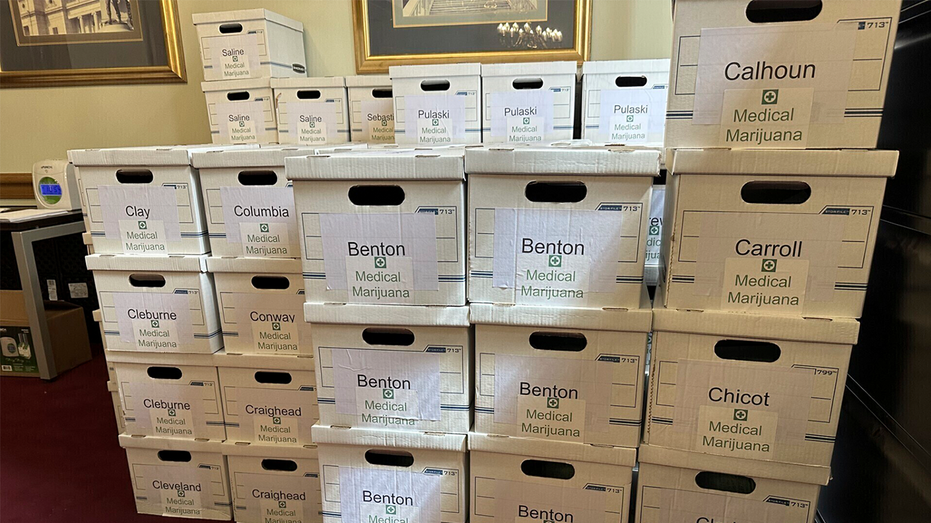
The Arkansas Supreme Court ruled Monday that voters will not be allowed to weigh in on a ballot measure to expand medical marijuana in the state, arguing that the initiative failed to fully explain what it entails. In a 4-3 decision, the justices threw out the initiative just two weeks before the election, according to The Associated Press. It is too late to remove the measure from the ballot, as early voting began on Monday, so the court instructed election officials not to count any votes on the initiative. The proposed constitutional amendment would have expanded the definition of medical professionals who can certify patients for medical cannabis, added qualifying conditions and made medical cannabis cards valid for three years. The court ruled the Arkansas Medical Marijuana Amendment of 2024 did not fully inform voters that it would have removed the authority of the state Legislature to change the 2016 constitutional amendment that legalized medical marijuana in the state. OLDER AMERICANS TURN TO MARIJUANA FOR BETTER SLEEP AND PAIN RELIEF: HERE’S WHAT TO KNOW “This decision doomed the proposed ballot title, and it is plainly misleading,” Justice Shawn Womack wrote in the majority opinion. The court also said the initiative did not inform voters that the amendment would legalize up to an ounce of marijuana possession for any purpose if marijuana were legalized at the federal level. Organizers of the initiative said in court filings that the ballot measure did cite the number of provisions that would be repealed and argued that previous court rulings said measures did not need to summarize the current law that would be amended. Justice Cody Hiland said in a dissent that the court was ignoring decades-long precedent by ruling the measure’s language was misleading. “Long ago, this court established definitive standards for evaluating the sufficiency of popular names and ballot titles,” Hiland wrote. “This court has not deviated from those standards until today.” The court also rejected election officials’ reasons for ruling the measure’s organizers fell short of the signatures needed for placing the measure on the ballot. EARLY IN-PERSON VOTING BEGINS FOR ALASKA, ARKANSAS, CONNECTICUT, IDAHO, NORTH DAKOTA, SOUTH CAROLINA, TEXAS Arkansans for Patient Access, the group behind the measure, said it would continue its push to expand the medical marijuana program and that the signatures it gathered displayed widespread support. “We are deeply disappointed in the Court’s decision,” the group said in a statement. “It seems politics has triumphed over legal precedent.” The group filed a lawsuit after Arkansas Secretary of State John Thurston said it fell short of the signatures required to qualify for the ballot. The issue over the ballot measure’s language was raised by Protect Arkansas Kids, a group that opposed the measure and intervened in the case. Thurston’s office had refused to count some of the signatures submitted, claiming the group had not followed paperwork rules about paid signature gatherers. Earlier this year, the state rejected petitions submitted in favor of a pro-life ballot measure on similar grounds. In July, the state said the group had fallen short of the required signatures for the medical marijuana measure but qualified for 30 additional days to circulate petitions. The state then told the group that any additional signatures gathered by paid signature gatherers would not be counted if required information was submitted by the canvassing company rather than the measure’s sponsors. The court said Monday that this decision was wrong, arguing that state law allows a wide range of people to be considered sponsors of the measure. Other groups had been campaigning against the measure, even as it was unclear whether it would be on the ballot next month. The Family Council Action Committee announced last week it planned to launch a statewide tour opposing the measure. “A measure this bad simply has no business being on the ballot or in the constitution,” the committee’s director, Jerry Cox, said after Monday’s ruling. About half of U.S. states allow recreational marijuana and a dozen more have legalized medical marijuana. In November, voters in Florida, North Dakota and South Dakota will decide whether to legalize recreational marijuana for adults, while two measures on medical marijuana will be on ballots in Nebraska. The Associated Press contributed to this report.
